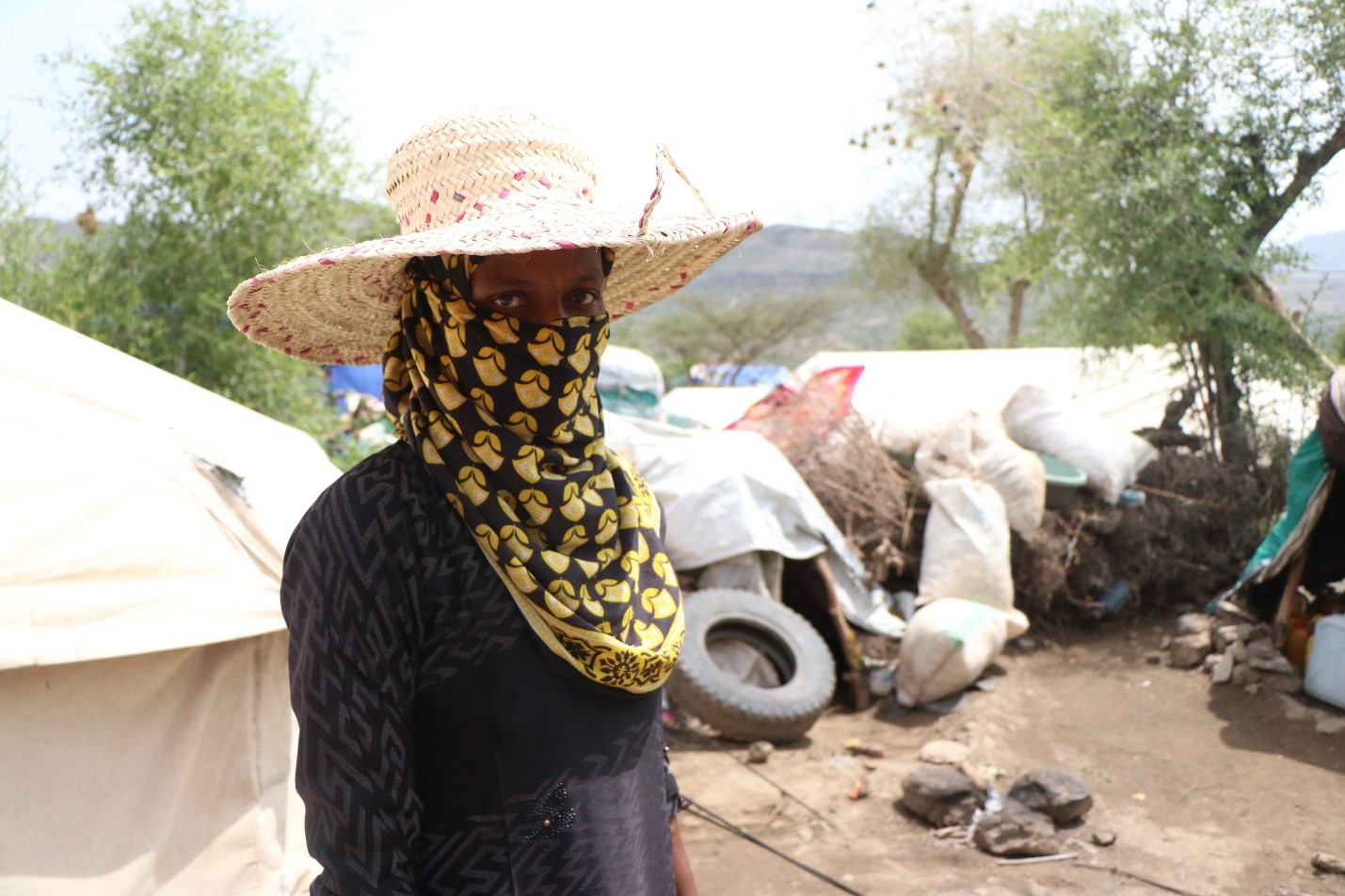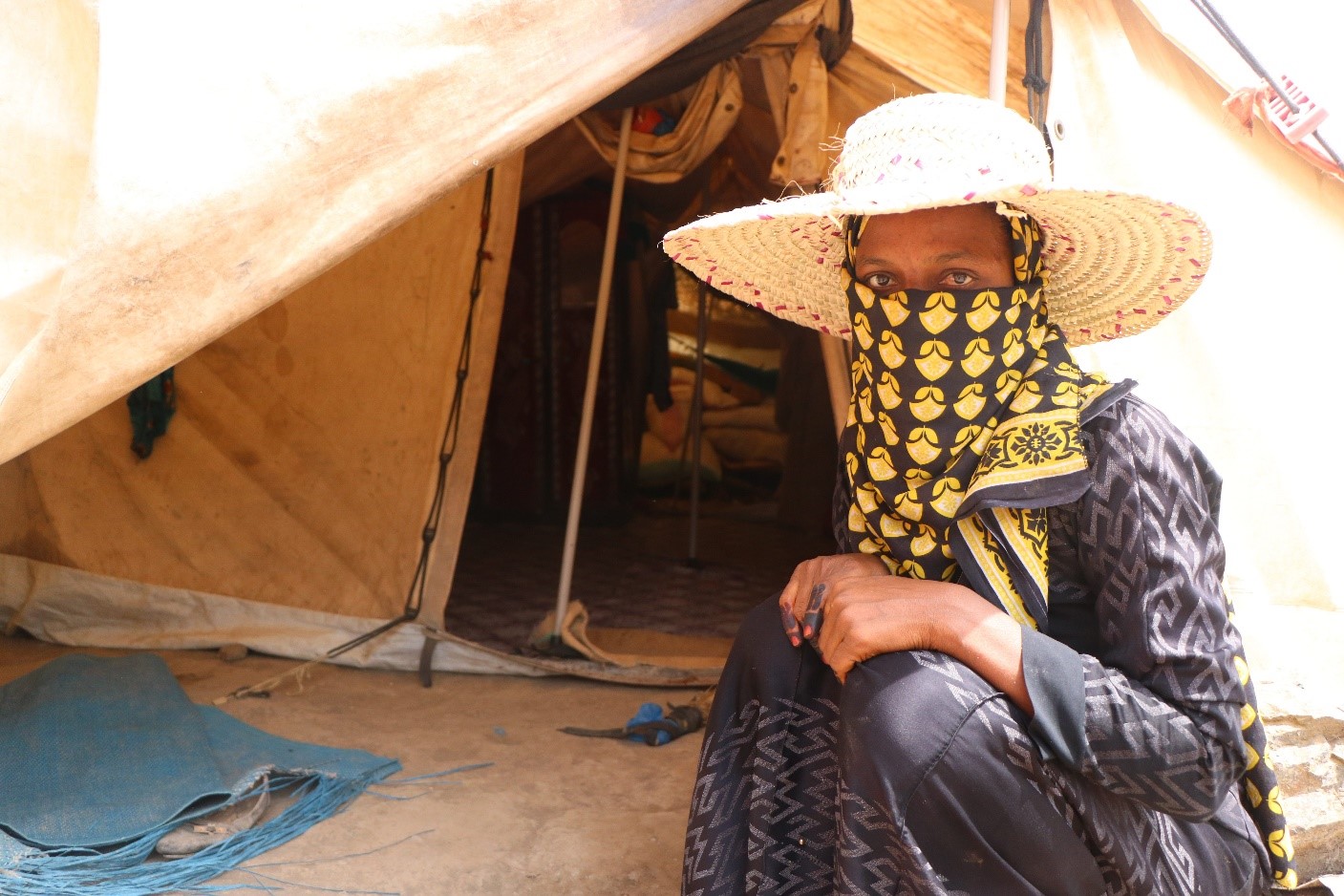Radeah, a 36-year-old widow, lives with her seven children in a small tent in Qa’attah Alwadi camp in Alma’afer district of Yemen’s Taizz governorate. Her husband died five years ago after a long battle with illness. “As he drew his last breath, my husband asked our elder daughter to take care of the family,” says Radeah with eyes full of tears. “Since then my daughter Ahlam and her brother Mohammed dropped out school and started to work. They are still struggling to pay off their father’s treatment debts. We lost our breadwinner and protector. it is so hard to continue without him.”
Radeah knows that her children shouldn’t be wandering the streets without protection. She knows the kids should stay home to avoid sickness and other risks. All displaced mothers wish their children could go to school instead of working. But the family simply has no other source of income. They need to work from the early hours of the morning to secure food and other essentials. “One of my kids got sick because of working such long hours,” says Radeah. “I understand he suffers a lot to provide food for us. Every day I pray for my children to come back to me safely.”
For thousands of displaced people like Radeah, COVID-19 has imposed a new challenge, inreasing their vulnerability. Not only do they lack access to soap and clean water, but even a basic instruction like ‘stay at home’ for them means ‘stay without food.’
“I trust that one day we will find quietness away from this world,” Radeah whispers. “I hope happiness will remember me one day.”

